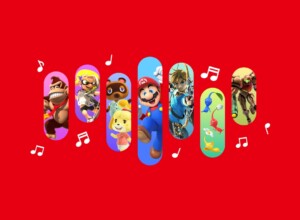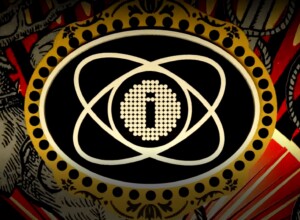Spoiler Alert: No, there isn’t.
A few weeks ago, we ran a retrospective piece on Final Fantasy VII for its eighteenth birthday. We talked through the recent remake debacle, some of the release and localisation quirks, and a little about how the atmosphere and tone of the title still hold up after eighteen years. Even though the game is nearly two decades old, at no point in this article – other than giving away the details of a few inconsequential set pieces to illustrate the idiosyncratic localisation – did we unleash any spoilers. Kill Screen Daily, on the other hand, took an entirely different road.
For the record, I actually love Kill Screen Daily. I am a massive supporter of their approach to video game coverage; in the clamouring din of social sharing, news aggregators and Twitter, Kill Screen are a shining beacon of intelligent writing and mature coverage. If you like Thumbsticks, then you should go and read Kill Screen Daily. You will love Kill Screen, I promise.
Yesterday however (the 25th February 2015, at the time of writing) Kill Screen Daily ran a charmingly-titled piece, A grown-ass man replays Final Fantasy VII, written by a chap called Clayton Purdom. Since we’re going on the record, I don’t have any particular issue with the title, either – it actually made me chuckle – although we might want to collectively be careful of pulling at the ‘grown-ass man plays’ thread, lest we lend any credence to the ridiculous notion that video games are just for children. My issue was in fact with the way the article began, as illustrated by the following (heavily redacted) screenshot:

This screenshot will give you an idea of how far I would be inclined to go to avoid spoilers. Not only have I redacted the character’s name, which appears four times in that screenshot, but I have also redacted one noun and four pronouns that might steer you towards one group of the Final Fantasy VII cast over another. Clayton’s piece is well-written, entertaining, and absolutely befitting of a Kill Screen article, but it would be remiss not to take them to task on the rampant spoiling taking place.
Instant gratification
First and foremost, my argument is with the immediacy of the spoiler. Not only is it blurted out within literally the opening two words of his piece (for those of us who have intentionally opened the piece to read it) but this being the internet, the opening twenty to one-hundred words will follow that article as a ‘teaser’ wherever it goes.
As it stands, the spoiler doesn’t appear on the Kill Screen Daily front page (because the article is featured with an image and no teaser text) but as it slides further down the scale of recent articles, it will lose its image and its spoil-filled teaser will appear. Worse than that though, is the rest of the world linking to it; I actually first spotted the article on Digg, where the spoiler was front-and-centre, and before you realise it, the spoiler is everywhere. Aggregators, social networks, other gaming sites – nearly everyone that links into it will be including the teaser text, whether intentionally or via some sort of feed posting system, and that teaser text will include those fateful two words from the beginning of the article.
Therein lies the issue with the immediacy of the current internet as a medium, as a careless (or callous) method of delivering spoilers. Forums still include spoiler warnings and revelation-hiding tags, as they did in the dim, dark past, but before you’ve had chance to heed the warning the spoiler has already been delivered by some other, far more instantaneous and ultimately unavoidable method. Look at AMC’s official Facebook page, posting an obit tribute to a fallen character from The Walking Dead immediately after it happened, completely forgetting that the UK (and the rest of the world) wouldn’t be viewing the episode for another twenty-four hours. Bam. Instantaneous spoiler.
That’s no secret – everybody knows
You (and Clayton) may well argue that the spoiler in question is common, public knowledge. You might suggest that everyone knows this particular piece of information, and that no matter how critical it is to the story it is ultimately fair-game, because it has been in the public domain for so long. In the article he states, “If you don’t know what it means then it doesn’t matter that you now know.” A fair assertion, it could be argued, but I wouldn’t be so quick to agree with him.

Where once this particular Google suggested search would have been littered with auto-completes of ‘dies’ and ‘dead’ and ‘possible resurrection’ it now links to far more mundane things, like businesses who happen to share a name with this doomed character. Because the game is not being actively talked about as it once was, then it’s easy to forget that not everybody knows, and we shouldn’t be going out of our way to make it easier for people to accidentally find out.
Take a look at the world of movies, by way of example. You wouldn’t walk up to someone in the street and blurt out who Keyser Soze is, or what Soylent Green is, or even that thing about Bruce Willis, even though the movies in question are twenty, forty-two and sixteen years old respectively. Sure, you could argue that most people would probably know, but if you find out that someone hasn’t seen Soylent Green, the first thing you do is deliberately not tell them what Soylent Green is. In fact if you want someone to enjoy that movie, you will actively encourage them to seek it out without risking Google or IMDB, to ensure they get the full enjoyment of the reveal and try to make it as special for them as it was for ourselves.
The issue of the Star Wars prequels, quite aside from the fact they were terrible, was that they totally undercut the flow of the story and by their expectation of prior knowledge, totally robbed the sequential viewer of the shocking reveals later in the series. Some advocate not watching the prequels until after the originals, or some (myself included) recommend not watching the prequels at all. But for those who absolutely must, a third way has been invented – the machete order – in which the films are watched in a specific order, with some of the prequels serving as flashbacks, in order to protect the viewer from those all-important spoilers. It’s a little extra effort, but don’t the younger generation deserve the same chance we had, to enjoy it as it was originally intended? (And before George Lucas changes it again…)
This seems particularly pertinent with the imminent Final Fantasy VII re-release on PS4. Sure, it’s just a slightly up-scaled port of the PC version, and it’s not the remake that everyone was hoping for, but it is still going to be an opportunity for a whole new generation of gamers to experience and enjoy it for the first time. By some miracle, some of them may have even gotten to this point without stumbling upon the major reveals of the game, and if even one single person has had their experience spoiled by Kill Screen (or anyone else) publishing unfettered spoilers, then that is simply one person too many.






